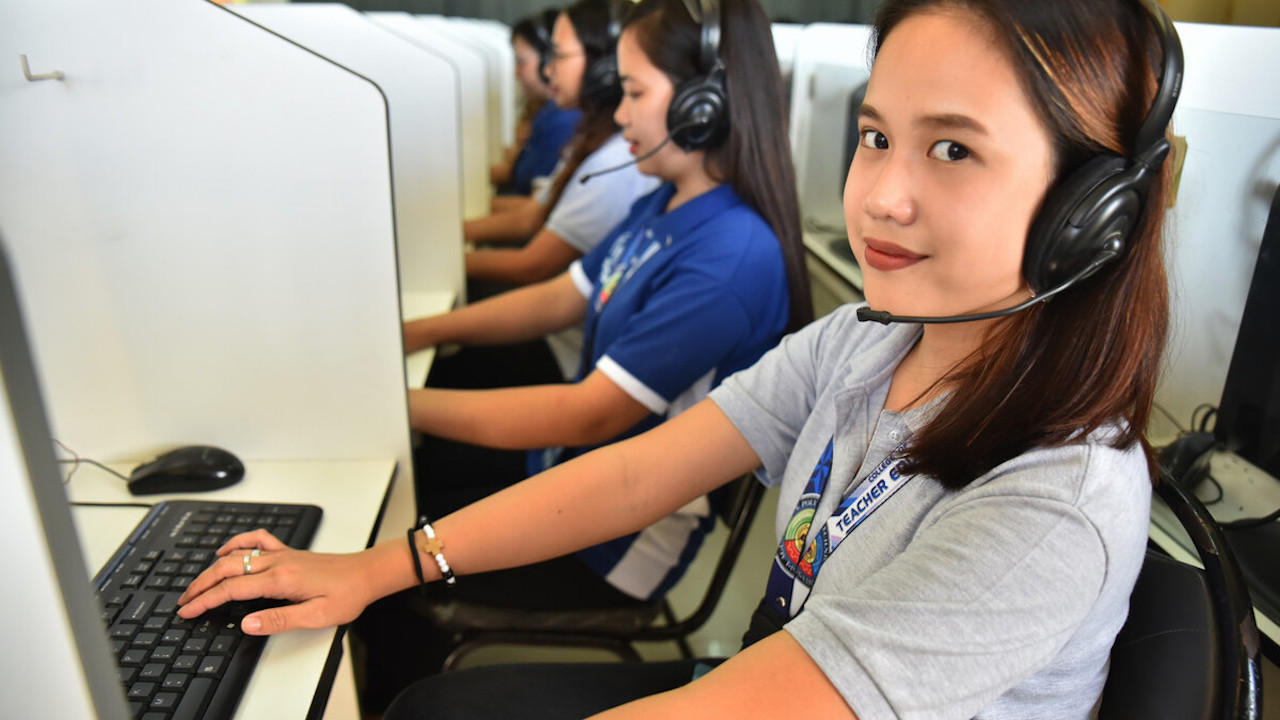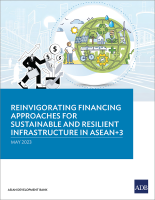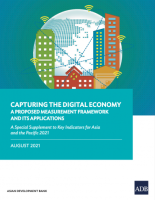
The Philippine startup ecosystem ranks among the top 20 global ecosystems in terms of affordable talent, according to data from Startup Genome 2022. Photo credit: ADB.
Two landmark laws enacted in 2019 defined national policy to foster the growth of startups, in turn, spurring the development of the ecosystem.
From just 100 in 2015, the number of active startups in the Philippines has grown sevenfold to 700 at present, thanks to a growing ecosystem of support and financing which has accelerated in the last 2 years.
With a better ecosystem, Philippine startups have also received more funding in recent years. In 2021, a total of $858 million was invested in startups, more than the combined total of $803 million from 2018 to 2020.
A new report from the Asian Development Bank (ADB) said interest and investments in startups have become more pronounced in the last 2 years likely due to digital transformation in the wake of the COVID-19 pandemic.
The report, which is also based on interviews with startups founders, noted a significant improvement in the level and quality of government support for the sector. A decade ago, when the tech startup scene was emerging, it was much more difficult to get government attention or support.
With gradual improvements in the country’s startup ecosystem, the Philippines’ place in innovation rankings also improved. Between 2014 and 2021, it rose from 100th to 51st in the Global Innovation Index.
The Philippine startup ecosystem also ranks among the top 20 global ecosystems in terms of affordable talent, among the top 25 Asian ecosystems in terms of funding, and among the top 30 Asian ecosystems in terms of “bang for the buck,” the study said, citing data from Startup Genome 2022.
However, startups face challenges in securing funding and getting the support they need, the report said. Other key constraints include a lack of local talent and tech mentors, digital infrastructure, and digital literacy.
Both BIMP-EAGA and the Association of Southeast Asian Nations (ASEAN) have programs supporting startups. In 2016, BIMP-EAGA started the Startuphubs@BIMP-EAGA program to facilitate exchanges of knowledge and resources to bolster startups. The project was a priority program under the subregion’s Vision 2025, which details BIMP-EAGA’s economic and development agenda. In 2021, ASEAN released guidelines on creating an enabling environment for the region’s startups, as the grouping recognized these new ventures have the potential to drive innovation, create jobs, and spur economic growth.
Key Philippine programs
The Philippines has two landmark laws that define national policy to foster the growth of tech startups: the Philippine Innovation Act and the Innovative Startup Act. Both were enacted in 2019 and are designed to spur technological innovation to achieve economic growth and sustainable development.
Among government agencies, three key departments provide support to the startup community: the Department of Science and Technology (DOST), the Department of Trade and Industry (DTI), and the Department of Information and Communications Technology (DICT). Each has its own programs and initiatives.
Department of Science and Technology. DOST has three sectoral planning councils that develop and implement programs and strategies for science and technology. Each council also has its own programs for startups. One of them, the Philippine Council for Agriculture, Aquatic and Natural Resources Research and Development (PCAARRD) operates a fund that provides finance to startups in the agriculture and aquatic and natural resources sectors to support product improvements, marketability, process improvements, and technology validation. Startups can receive up to 5 million pesos ($90,479.93) to implement a proposal within 1 year. The program targets startups that have been operating for at least a year and no more than 5 years.
PCAARRD also runs the Agri-Aqua Innovation Challenge with the Asian Institute of Management and the Management Association of the Philippines. This competition is open to startups that have been in operation for 1–5 years and students who have agri-aqua technologies in early-stage prototypes. In the student category, winners will receive 100,000 pesos to 400,000 pesos, while winners in the professional category will receive 200,000 pesos to 1 million pesos, plus mentorship from the Asian Institute of Management.
PCAARRD also has the National Agri-Aqua Technology Business Incubation (ATBI) program, which provides technology management, business development, networking, marketing, and administrative support services, as well as access to facilities and equipment for startups. Since 2017, 22 ATBIs have been established and received 230 million pesos.
Another body under DOST, the Philippine Council for Health Research and Development (PCHRD), operates a Startup Research Grant Program that funds early-stage health startups in the areas of research and development (R&D), technology improvement, or creation of initial market traction. Grants range from 3 million pesos to 5 million pesos.
The Philippine Council for Industry, Energy and Emerging Technology Research and Development (PCIEERD) also funds early-stage startups in sustainable industries, learning and education, remote productivity tools, creative industries, and data-driven solutions. Funding is provided up to 5 million pesos. In 2021–2022, funding was approved for 49 startups with a total of 183 million pesos.
PCIEERD also implements the Women-Helping-Women: Innovating Social Enterprise Program, which provides incubation and funding support to women-led social enterprises. The program supports technology purchases, R&D, technical assistance, and mentoring. The council provided 54 million pesos to 14 enterprises in 2021–2022.
DOST also runs the Technology Application and Promotion Institute (TAPI), which is tasked to accelerate the commercialization of technologies. One of TAPI’s initiatives is the Venture Financing Program, which provides up to 2 million pesos per project to improve viability, increase competitiveness, and promote commercialization of technologies or inventions. The fund can cover up to 70% of the total project cost, while the startup or technology development project is expected to put up 30%.
Department of Trade and Industry. DTI has various programs for early-stage and advanced-stage startups, as well as for those planning to expand globally.
Support for early-stage startups includes learning sessions and workshops, consultation services, and mentorship from industry experts. Advanced-stage startups get financial management, intellectual property rights, and mentorship support. While those planning global expansion get support which includes international training workshops, venture capital funding, delivering a regional business development program, as well as business-to-business matching sessions to facilitate collaboration between traditional micro, small-, and medium-sized enterprises and startups that can help them apply innovative activities, such as digital solutions, in their operations.
DTI also runs a 250-million-peso startup venture fund to support the expansion, product development, sales, marketing, etc. of tech startups.
Department of Information and Communications Technology. The DICT has supported startups since its inception in 2015. Before the enactment of the two landmark laws supporting startups, programs focused primarily on raising awareness of how aspiring entrepreneurs can create a tech startup. With the implementation of the Innovative Startup Act, DICT has taken on a larger role in the startup ecosystem with its Digital Startup Development and Acceleration Program, which consists of several subprograms.
The first subprogram strengthens DICT’s awareness campaigns and learning sessions in collaboration with stakeholders from the private sector. For example, Startup 101 is a one-day workshop that teaches participants how to develop ideas, pitch, and create a minimum viable product. Participants interested in further developing their idea and product can go to Startup 102.
As part of the Startup Ecosystem Mapping, DICT assesses the startup ecosystem in selected cities outside Metro Manila. Related to this is the Digital Cities Program, where the department selects ideal locations nationwide for information technology and business process management (IT-BPM) firms. In addition to IT-BPM, the program also encourages these cities to improve their innovation ecosystem to support local startups.
DICT is currently developing the One Philippine Startup Portal as an online database for startups and startup enablers. Statistical information, annual reports, and other studies relevant to the startup ecosystem in the Philippines will also be made available.
The department also plans to establish innovation studios, which will serve as coworking spaces equipped with the necessary hardware and software to support startups.
DICT, through the ICT Industry Development Bureau, will also launch a fund to finance early-stage ICT-based startups and help them access mentors and coaches. Qualified startups will receive a grant ranging from 500,000 pesos to 1 million pesos. Startups that have a proof of concept and need assistance to build prototypes, or that have a prototype and need resources to develop a minimum viable product, are eligible to apply. The grants are open to all startups that seek to solve social problems.
Recommendations
While government's support for startups has improved, more needs to be done to spur the development of these new ventures. The report recommended the following:
High-level actions:
- Appoint startup champions to the National Innovation Council, a 25-member advisory body chaired by the President and includes 16 department secretaries and the National Economic and Development Authority.
- Monitor the implementation of the Innovative Startup Act and the Philippine Innovation Act.
Programs and regulations:
- Monitor and adjust new programs to maximize their effectiveness.
- Create a cofinancing scheme involving the national government and local government units to develop local ecosystems.
- Streamline requirements for grant programs.
- Accelerate digitization of regulations, programs, and procurement.
Incubators and accelerators:
- Attain high quality of new incubators.
- Promote accelerator programs for advanced-stage startups.
Digital infrastructure and literacy:
- Increase access to low-cost digital services.
- Promote digital inclusion through digital literacy programs.
Procurement and endorsement:
- Increase awareness of Philippine Government Electronic Procurement System, the public procurement platform.
- Increase endorsement of healthtech startups.
Incentives for investors:
- Create a tax credit for investors in early-stage startups.
- Reduce the need for startups to register abroad.
Talent:
- Introduce a voucher system to encourage students to enroll in science, technology, engineering, and mathematics (STEM).
- Integrate STEM elements into agriculture courses at senior high schools and vocational institutes.
This article was first published by BIMP-EAGA on 27 July 2023.

BIMP-EAGA
The Brunei Darussalam–Indonesia–Malaysia–Philippines East ASEAN Growth Area, or BIMP-EAGA, is a cooperation initiative established in 1994 to spur development in remote and less developed areas in the four participating Southeast Asian countries.

